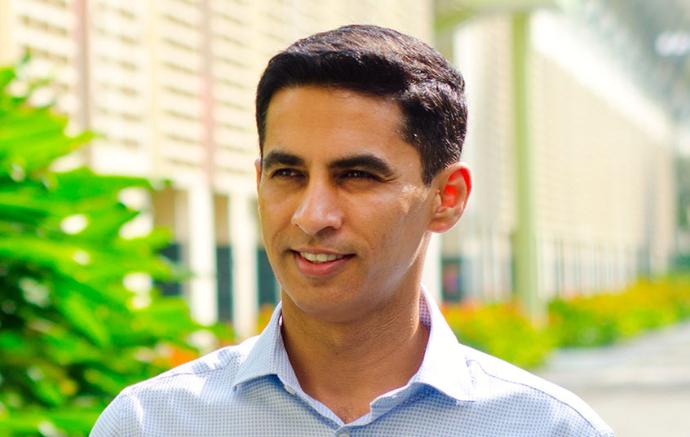Rote learning has had its day. Almost 400 years after we started cramming knowledge into people, the success of artificial intelligence won't only enable new ways of learning. It will more-or-less require them. At least, that's what Manu Kapur believes. Kapur is the Director of the Singapore ETH Centre and a professor at the ETH Zurich, where he runs the Future Learning Initiative. His presentation at the 21st European Trend Day of the Gottlieb Duttweiler Institute (GDI), which takes place on 12 March 2025, will also look at the future of learning.
The book 'Poetischer Trichter' (Poetic funnel), published in Nuremberg in 1647, aimed to help people teach and learn the art of poetry. To this day, the term "Nürnberger Trichter" (Nuremberg Funnel) is still used to describe a method that provides learners with vast amounts of information. This approach has always been contentious because the amount of taught material doesn't directly correlate to a commensurate level of learning. In the age of AI, it looks set to become completely obsolete, since mass ingestion of information is much more appropriate for computers than humans. After all, machine learning involves feeding AI with huge amounts of data.
Because computers never forget anything and remember far more data than we can, we'll lose out to them if we insist on sticking to our old way of learning. We must therefore learn differently if we are to prevail. Reversing the direction of learning is one way of doing this. In other words, not learning first and then applying the knowledge thus gained, but the other way round.
This is the idea behind a method tested by Kapur at ETH Zurich: In a basic course on linear algebra, students were tasked with solving a total of ten problems over a period of two semesters which required them to apply subject matter that they hadn't yet been taught. While this method may sound a little odd, it produced remarkable results: whereas only 55% of students had previously passed the linear algebra course, the success rate now climbed to as high as 70-75%!
Learning researcher Kapur says that insight and failure are key factors for success; insight because this clearly shows us in advance why the next learning material will actually be needed, and failure because within human development, failing provides a greater incentive to learn than does success.

|
Manu Kapur is the Director of the Singapore-ETH Center and Professor of Learning Sciences and Higher Education at ETH Zurich, where he also leads The Future Learning Initiative. He has secured substantial research funding, influenced national education policies, and delivered keynote addresses at prestigious global forums. | ||||||||||
Protected spaces for productive failure
It is decisive that failure isn't seen as defeat, but rather as a learning step and experience. Kapur therefore uses the term "productive failure," which he says schools, universities and other educational establishments could integrate into their curricula. Providing protected spaces for productive failure enables learning to be maximised and keeps frustration low.
This presents one of the greatest challenges for teaching personnel. After all, Kapur says, it's counter-intuitive to some extent: "As teachers, we have a very strong impulse to help, to make it easy for the learner. I think good teaching happens when you at least control that impulse. Your goal has to be to help the learner to make progress along the path." That may sometimes means making things harder: "Being frustrated, struggling, are normal things. In fact, if you’re not feeling those things, that means you’re probably not learning."
Don't miss the upcoming European Trend Day on the topic "Highway to heaven? How AI transforms society and work". We'll be discussing the future of work and the opportunities presented by a post-work society with Manu Kapur and other visionary thought leaders. Enjoy a day packed with inspiration and debate with about 250 industry experts and potential partners.